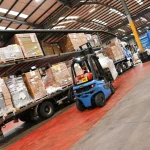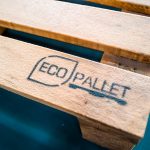
How Sustainable Pallet Manufacturing Benefits Your Business and the Planet
In today’s world, sustainability is no longer just a buzzword – it’s a necessity. Businesses across industries are seeking ways to reduce their environmental footprint, and pallet manufacturing is no exception. Opting for sustainable pallet manufacturing not only supports global efforts to protect the planet but also offers tangible benefits for your business. Let’s explore how sustainable pallet practices create value for both your company and the environment.
What Is Sustainable Pallet Manufacturing?
Sustainable pallet manufacturing focuses on eco-friendly practices throughout the production process. This includes using responsibly sourced materials, minimizing waste, and ensuring pallets are designed for durability, repairability, and recyclability. By prioritizing sustainability, manufacturers contribute to a circular economy while meeting the growing demand for environmentally conscious products.
Benefits for Your Business
1. Cost Savings
- Durability and Longevity: Sustainable pallets are designed to last longer, reducing the need for frequent replacements.
- Recycling and Reuse: Recyclable and reusable pallets lower costs associated with disposal and raw material procurement.
- Optimized Operations: Pallets tailored for efficiency reduce storage and transportation costs by maximizing space utilization.
2. Enhanced Brand Reputation
- Consumer Appeal: Modern consumers increasingly favor brands that prioritize sustainability.
- Competitive Advantage: A commitment to eco-friendly practices helps your business stand out in a crowded marketplace.
- Stakeholder Trust: Demonstrating environmental responsibility fosters trust among partners, investors, and clients.
3. Compliance and Risk Mitigation
- Meeting Regulations: Sustainable manufacturing aligns with environmental regulations and standards such as ISPM-15 for international shipping.
- Future-Proofing: Adopting green practices now ensures your business stays ahead of tightening environmental laws and market expectations.
Benefits for the Planet
1. Reduced Deforestation
Sustainable manufacturing relies on responsibly sourced wood from certified suppliers. This helps protect forests, supports reforestation efforts, and preserves biodiversity.
2. Lower Carbon Footprint
Eco-friendly production processes use less energy and produce fewer emissions. Durable pallets require fewer resources over time, further reducing environmental impact.
3. Waste Minimization
Sustainable pallets are designed for recycling and repair, diverting waste from landfills. Additionally, leftover materials from the production process are often repurposed, reducing overall waste.
4. Contributing to a Circular Economy
By reusing materials and extending the life cycle of pallets, sustainable manufacturing supports a circular economy where resources are continuously repurposed instead of discarded.
How to Incorporate Sustainable Pallets into Your Business
- Partner with Green Manufacturers: Work with suppliers who prioritize eco-friendly materials and processes.
- Invest in Quality: Choose durable pallets that can withstand repeated use, reducing the need for replacements.
- Promote Recycling: Establish systems for collecting and recycling pallets to extend their life cycle.
- Educate Your Team: Ensure your staff understands the importance of sustainability and how to handle pallets responsibly.
Conclusion
Sustainable pallet manufacturing is more than an ethical choice; it’s a smart business strategy. By integrating eco-friendly pallets into your operations, you can reduce costs, enhance your brand’s reputation, and contribute to a healthier planet. At [Your Company Name], we’re committed to delivering high-quality, sustainable pallets that benefit both your business and the environment. Contact us today to learn more about how our solutions can help you achieve your sustainability goals.





Add a comment